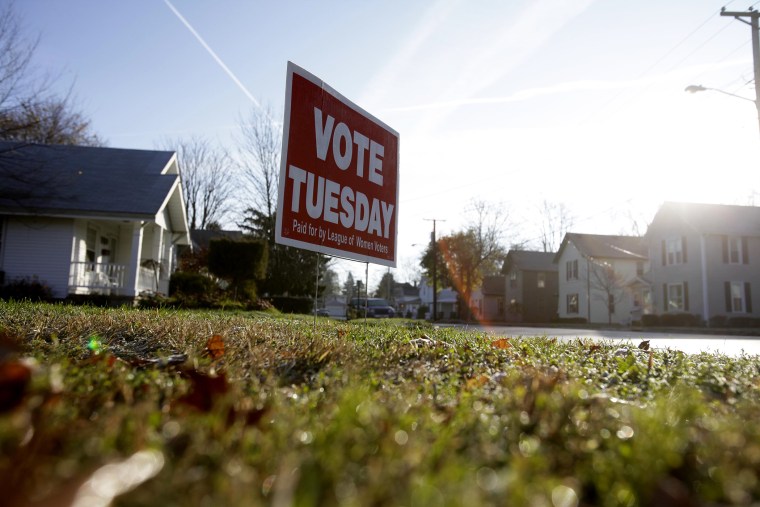By a vote of 5-4, the U.S. Supreme Court has ordered that Ohio's controversial cuts to early voting can go into effect. The ruling comes just 16 hours before early voting was scheduled to start in the Buckeye State.
The court's five conservative justices—Roberts, Alito, Scalia, Thomas, and Kennedy—voted to let the cuts go forward. The four liberals—Ginsburg, Breyer, Kagan, and Sotomayor—voted to keep them on hold.
"Thousands of Ohioans rely on early voting,” said Dale Ho, director of the ACLU's Voting Rights Project. “For many, it is their only chance to cast a ballot during an election. While today's order is not a final ruling on the merits, it will deprive many Ohioans of the opportunity to vote in the upcoming election as this case continues to make its way through the courts."
The Republican-backed cuts were blocked earlier this month by a federal judge, who ruled that they violated the Voting Rights Act's ban on racial discrimination in voting. After an appeal by Ohio, that verdict was upheld by a three-judge panel of a federal appeals court. Ohio then appealed to the Supreme Court.
A full trial on the cuts is scheduled for next year.
In February, Ohio’s Republican-controlled legislature cut the early voting period from 35 to 28 days, citing the need for uniformity across the state. The period that was cut was known as “Golden Week,” when Ohioans can register and vote on the same day. Same-day registration is among the most effective ways to bring new voters into the process, experts say. Days later, Secretary of State Jon Husted issued a directive that ended Sunday voting and weekday voting past 5 p.m. Many African-American churches have in past years conducted “Souls to the Polls” drives on Sundays after services.
In appealing to the Supreme Court, a Husted spokesman said the issue was a matter of "protecting states' rights" against federal intrusion.
"Today's decision is harmful to Ohio voters," State Senator Nina Turner said in a statement, adding, "The same divided court that struck down key provisions of the Voting Rights Act has now made it immeasurably more difficult for working Ohioans, African Americans, and low income and homeless voters to cast their ballot."
“Today’s ruling validates what I have long said," Husted said in a statement, "elections in Ohio should be run by the same rules in every county and Ohioans should have the right to make those rules through their elected representatives."
Rick Hasen, a prominent election law scholar at the University of California, Irvine, suggested that the ruling was appropriate.
"The Ohio case did not involve significant burdens, and the theories accepted by the district court and 6th Circuit panel were vast constitutional expansions of voting rights," he wrote on his blog.
Hasen added that the case could also establish a precedent that sets back the cause of voting rights in other states that have seen voting restrictions lately: "I am worried this case will make bad law, and have bad effects in cases such as challenges to Wisconsin’s voter id law, Texas’s voter id law, and North Carolina’s omnibus bill making it harder to vote," Hasen wrote.
